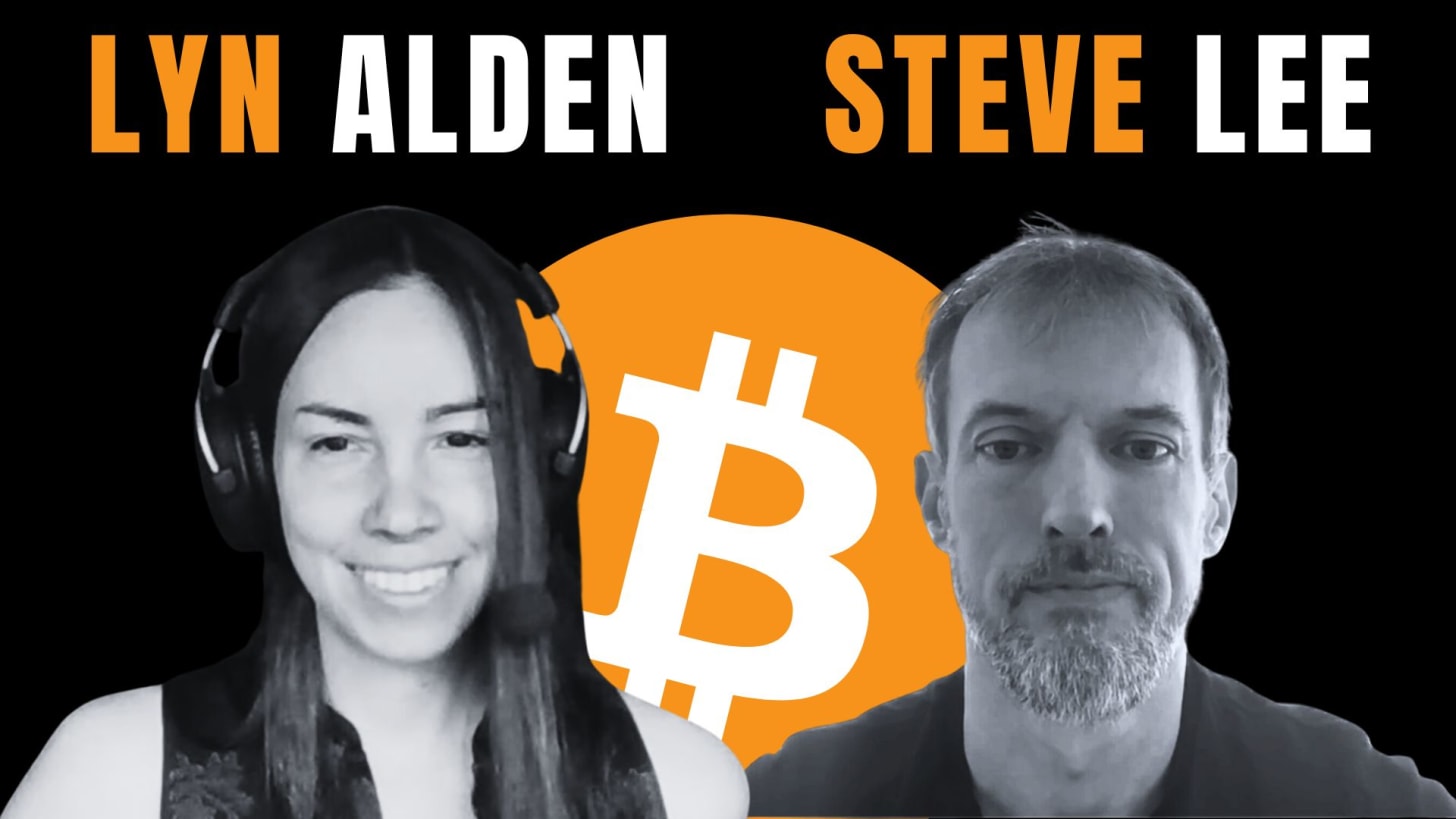LYN ALDEN & STEVE LEE: Analyzing Bitcoin Consensus: Risks in Protocol Upgrades
On this Bitcoin Talk episode of THE Bitcoin Podcast, Walker talks with Lyn Alden and Steve Lee about their new report "Analyzing Bitcoin Consensus: Risks in Protocol Upgrades."
"One bitcoin from a self-custody investor is basically infinitely more valuable in setting the price than thousands of bitcoin held elsewhere if they aren't able to sell that fork... that's one of the positive findings from our paper is that's actually a rather anti-fragile aspect of the network: that some of the most committed and smaller entities actually have kind of a disproportionate impact compared to some of those larger entities."
LISTEN / WATCH:
Fountain: https://www.fountain.fm/episode/KR0X4pPA1ai8FYGVMZqY
YouTube:
Apple:
Spotify:
Everywhere else: https://bitcoinpodcast.net/podcast
INTRODUCTION
On this Bitcoin Talk episode of THE Bitcoin Podcast, Walker talks with Lyn Alden and Steve Lee about their new report "Analyzing Bitcoin Consensus: Risks in Protocol Upgrades." This paper analyzes the process and risks of how Bitcoin upgrades its consensus rules over time, from a technical and economic perspective. If you’ve ever had questions about how Bitcoin consensus actually works, gotten confused by terms like “economic nodes,” wondered about who the real stakeholders are when it comes to bitcoin upgrades, or been curious about the game theoretical implications of large institutions and governments getting into Bitcoin, this episode is going to answer all your questions and more.
READ THE REPORT: https://github.com/bitcoin-cap/bcap
FOLLOW LYN
Nostr: https://primal.net/lyn
X: https://x.com/LynAldenContact
FOLLOW STEVE:
Nostr: https://primal.net/moneyball
FOLLOW ME (Walker) on Twitter Personal (@WalkerAmerica) | Twitter Podcast (@TitcoinPodcast) | Nostr Personal (walker) | Nostr Podcast (Titcoin)
*****
THE Bitcoin Podcast Partners -- use promo code WALKER for...
> bitbox.swiss/walker -- 5% off the Bitcoin-only Bitbox02 hardware wallet.
> EFANI: Protect yourself from SIM swap attacks – go to https://www.efani.com/walker and it’ll automatically apply the promo code WALKER getting you $99 OFF.
*****
If you enjoy THE Bitcoin Podcast you can help support the show by doing the following:
Subscribe to THE Bitcoin Podcast (and leave a review) on Fountain | Apple Podcasts | YouTube | Spotify | EVERYWHERE ELSE
Summary
This conversation explores the complexities of Bitcoin consensus, exploring its nature, the distinction between changes and maintenance, and the various stakeholder groups involved. The discussion highlights the challenges of defining consensus, the dynamics of hard and soft forks, and the game theory that underpins decision-making in the Bitcoin ecosystem. The impact of institutional adoption on the consensus landscape is also examined, emphasizing the evolving nature of Bitcoin governance and the roles of different actors. This conversation delves into the evolving landscape of Bitcoin, focusing on the dynamics of ownership, the influence of institutions, and the risks associated with mining centralization. The speakers discuss potential scenarios for consensus changes, the importance of stakeholder perspectives, and the future of Bitcoin adoption as it transitions from a niche asset to a more widely accepted form of value. They emphasize the need for awareness and analysis of proposed changes to ensure the security and decentralization of the network.
Takeaways
Bitcoin consensus is a complex and evolving topic.
The distinction between changing Bitcoin and maintaining it is crucial.
There are six key stakeholder groups in Bitcoin consensus.
Economic nodes play a significant role in the network's dynamics.
Hard forks require unanimous agreement, while soft forks do not.
Game theory is essential in understanding consensus changes.
Investors can influence consensus but often have delayed power.
Self-custodied holders can act quickly in response to changes.
The landscape of Bitcoin is changing with institutional adoption.
Understanding past consensus changes can inform future decisions. Larger institutions are accumulating more Bitcoin, impacting market dynamics.
Self-custody investors can act more swiftly in market changes.
Mining centralization poses significant risks to Bitcoin's security.
The influence of media and institutions can shape Bitcoin narratives.
Consensus in Bitcoin is not formalized through votes but through community sentiment.
The majority of Bitcoin is still held by smaller investors and whales.
Proposed changes to Bitcoin require careful analysis of risks and benefits.
Stakeholders should ask critical questions about proposed consensus changes.
The future of Bitcoin adoption is seen as inevitable but requires patience.
Bitcoin's optionality enhances its value as a store of wealth.



